Anytime your industrial cleaning service provider employees visit your site, you open yourself up to risk. Think about it: How well do you know these workers? Do they know what they’re doing? How well are they trained? Are they insured? How well? Do they actually work for the company you hired, or are they subcontractors?
You may not have given it much thought before now, but these are all important questions to ask. In fact, to protect your employees, yourself, and your business, you need to ask these questions and make sure you get satisfactory answers. Otherwise, you could find yourself facing at best poorly performed or sub-par work and possibly lawsuits, increased insurance premiums, or even violations.
Let’s take a look at some of the areas to consider, as well as questions to ask your industrial cleaning service providers.
What kind of training does your service provider give its on-site workers? What about a company safety program? Will they share that info?
- What kind of training do they provide their on-site supervisors and technicians? Do they have a formal training program, a more informal mentor program, or a combination? What about special training, such as confined space entry, lockout-tagout or HAZWOPER (Hazardous Waste Operations and Emergency Response Standard program), if those apply to your facility and the work you’re contracting them to do?
- Do they have a company-wide safety program in place? Do they just pay lip service to safety considerations, or is safety an ongoing focus?
- Will they share their training and safety program information with you? This is key. Anyone can say they’ve got programs. It’s another thing entirely to have proof and be willing to disclose it to customers. Are these programs tailored to industrial cleaning work, or are they purchased, “canned” programs?
- Do they have an on-site safety program they implement before they begin a job? This could include an orientation regarding safety procedures, action steps to take if something goes wrong with the cleaning project, and the like. Often, companies will hold a tailgate safety meeting with their employees and your company representative before they begin a job. That way, everyone on site understands the hazards associated with the work, your facility and your company specific safety and emergency response requirements.
- What’s their OSHA recordable incident rate (RIR)? Incidents involving workplace accidents or injuries, and regulatory agencies have standardized these rates across industries for comparisons. You can use a company’s RIR to evaluate its safety performance. The closer to zero a rating is, the better.
What kind of insurance does your service provider have for on-site work? Will it cover your people or your facility if something goes wrong?
- Does the company have insurance for work completed on your property? Do they only carry the minimum? Is the coverage sufficient enough to cover your people or your facility, should anything go awry when they’re on your property?
- What about workers comp insurance? What the company’s experience modification rate (EMR)? Insurance companies use EMRs to assess the cost of past on-the-job injuries and predict future risks. All businesses begin with an EMR of 1.0, and that’s also the industry average. Less than a 1.0 is, of course, better.
Do you and your service provider have a signed service agreement clearly defining the work, responsibilities, terms, and conditions?
- What kind of experience does the company have? What contracts do they have in place?
- Does the company have the personnel and equipment resources to do the work themselves? Or do they subcontract the majority of the work? Subcontracting specific, specialized pieces of the job isn’t necessarily a bad thing, but you would want to find out about the subs’ safety and training programs and ratings in advance so you’re fully aware of and informed about those workers.
- Do the contractor and your company have a signed service agreement or contract clearly defining the work, respective responsibilities, terms, and conditions? This may become important in the case of incomplete or poorly performed work.
Why You Should Work with Environmental Remedies…
These may sound like a lot of questions to ask, but trust us—it’s well worth your time and effort to get answers. There’s a lot at risk.
Environmental Remedies, the go-to company for clean, is ready to answer all your questions regarding safety, training, ratings, and experience. With our own top-of-the-line equipment, exceptional insurance, dynamic safety program, and robust training program, we pride ourselves on being the waste services and industrial cleaning services provider of choice in the Southeast. To find out more about our resources and our expertise, call us at 800-399-2783.





